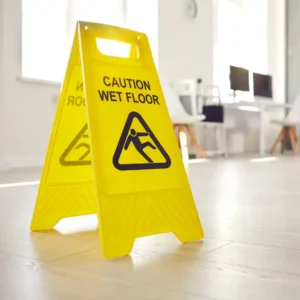
Slip and fall accidents often occur when property owners fail to maintain safe conditions, but questions of responsibility are not always straightforward. Injured individuals sometimes hesitate to pursue legal action because they believe they were partly to blame for the incident. In Florida, however, the law recognizes that accidents are complex, and compensation may still be available even when the injured person shares some responsibility. Understanding the concept of comparative negligence is critical to evaluating whether you may have a case.
Comparative negligence is a legal principle that distributes responsibility for an accident between all parties involved. Rather than eliminating a claim outright when an injured person contributed to the accident, the court or insurance company assigns a percentage of fault to each party. This percentage directly affects the amount of compensation that may be awarded.
For example, if a court determines that a property owner was 70 percent responsible for failing to fix a hazardous condition, and the injured party was 30 percent responsible for not exercising caution, the injured person may still recover damages, but the award would be reduced by their percentage of fault.
Florida law follows a modified comparative negligence standard, which was updated in 2023. Under this system, an injured party may recover compensation as long as they are not more than 50 percent at fault for the accident. If they are found to be 51 percent or more responsible, they cannot recover damages.
This change makes it especially important to carefully evaluate the circumstances of a slip and fall case. Even if you were distracted, wearing improper footwear, or failed to notice a posted warning, you may still have a claim if the property owner’s negligence was the greater contributing factor.
Many slip and fall cases involve shared fault. Some common scenarios include:
In each of these situations, comparative negligence ensures that the focus remains on the role of the property owner in creating or failing to correct a dangerous condition.
Because fault is divided, documentation becomes essential. Photographs of the hazard, witness statements, and medical records all strengthen the case by establishing how much responsibility the property owner should bear. Without strong evidence, property owners and their insurers may attempt to shift more blame onto the injured individual, reducing or eliminating potential compensation.
An experienced attorney can evaluate the facts of the accident, gather critical evidence, and present a clear case showing the property owner’s share of responsibility. Legal guidance also ensures that deadlines are met and that comparative negligence rules are applied fairly.
Slip and fall accidents can result in serious injuries, including fractures, head trauma, and long-term mobility issues. These injuries often come with significant medical costs, time away from work, and lasting effects on quality of life. Even if you believe you may share some responsibility, it is important not to assume that you do not have a claim. Florida’s comparative negligence law allows many victims to seek compensation that reflects the true circumstances of the accident.
At Aronberg & Aronberg, Injury Law Firm, we are committed to protecting the rights of injury victims. If you were hurt in a slip and fall accident, we can help you understand how comparative negligence may affect your case and pursue the compensation you deserve.